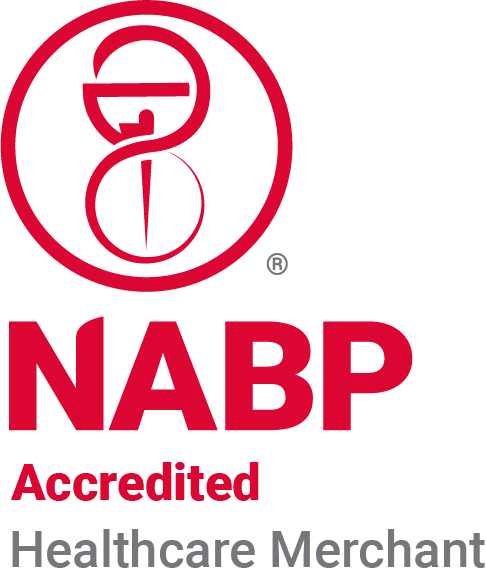Providing Quality & Trust
Cisapride/Metoclopramide capsule
Wedgewood Pharmacy
Starting at $159.00
$159.00 Each
Detailed Description
CISAPRIDE / METOCLOPRAMIDE: CAPSULE
Cisapride / Metoclopramide Capsule
Prescribed For: Cats, Dogs and Ferrets
May be Prescribed For: Gastric Stasis, Megacolon and Reflux
Cisapride / Metoclopramide may be prescribed for
- Gastric Stasis
- Megacolon
- Reflux
The dosage form available for Cisapride / Metoclopramide is Capsule. Wedgewood Pharmacy compounds more than 2,000 formulations in capsule form. The potency of each compounded capsule is verified through weight and yield checks before it is dispensed.
1 strength combination of Cisapride / Metoclopramide Capsule is available.
- Cisapride 3 mg/cap
- Metoclopramide 2 mg/cap
If you have any questions concerning these medications, please consult with your doctor.
Therapeutic Class
Gastrointestinal prokinetic
Species
Dogs, cats and horses
May Be Prescribed by Vets for:
Esophageal reflux or megaesophagus, anti-emetic, post-operative ileus, delayed gastric-emptying, megacolon.
Basic Information
Cisapride is a third-generation benzamide that is used in human and veterinary medicine as a motility-enhancement drug. Motility disorders of the gastrointestinal (GI) tract are a common clinical problem in companion animals. Post-operative ileus is a common and particularly difficult complication seen after abdominal surgery in horses. Cisapride once was used as a motility enhancement drug in human medicine but it is no longer manufactured or used for this purpose.
Cisapride activates acetylcholine release from the mesenteric plexus, which in turn stimulates GI smooth-muscle. Cisapride is a serotonergic agonist. Cisapride can show activity on the smooth muscle throughout the GI tract. Anatomic differences between species can affect clinical efficacy. For example, cisapride is not used generally to manage megaesophagus in dogs because they lack smooth muscle in the esophagus. Like cisapride, metoclopramide and domperidone also are drugs in the benzamide class. Cisapride does not increase gastric acid secretion.
Dogs and Cats
Cisapride has been used widely to treat gastric-emptying disorders, intestinal transit and other motility disorders in both dogs and cats. It accelerates emptying the stomach and propulsion of food through the intestines by increasing peristalsis. Cisapride is used in cats to manage chronic constipation and megacolon.
Work in humans has shown that cisapride is better absorbed when given with food. In small-animal practice it usually is recommended that cisapride be given orally 15 minutes before feeding.
Metoclopramide may be prescribed for
- Vomiting
- Gastro Esophageal Reflux
- Gastric Stasis
One of the dosage forms available for Metoclopramide is Capsule. Wedgewood Pharmacy compounds more than 2,000 formulations in capsule form. The potency of each compounded capsule is verified through weight and yield checks before it is dispensed.
9 strengths of Metoclopramide Capsule are available, ranging from 0.5 mg/cap to 30 mg/cap.
Basic Information
Metoclopramide is used in veterinary medicine to stimulate the motility of the upper GI tract. It has minimal effect on the lower GI tract and colon. Metoclopramide increases peristalsis of the small intestine and increases tone and strength of contractions in the stomach, while causing relaxation of the pyloric sphincter. Consequently, metoclopramide speeds gastric-emptying and, possibly, intestinal transit times. It does not stimulate gastric, pancreatic, or biliary secretions.
Metoclopramide acts as a central antiemetic by blocking the uptake of dopamine at the chemo receptor trigger zone in dogs. Additionally, part of its actions on the upper GI tract include increasing the sphincter pressure in the lower esophagus and reducing gastroesophageal reflux, which also may be helpful for decreasing vomiting.
Metoclopramide is well-absorbed orally. It penetrates the central nervous system (CNS) well, which may be relevant because of CNS side-effects. Metoclopramide crosses the placenta and is concentrated in milk at twice the level found in plasma. It is excreted primarily in the urine.
Dogs and Cats
Metoclopramide is used in a wide variety of gastric motility disorders, including ileus and gastritis. Because so many upper GI-emptying disorders present with nausea and vomiting due to abnormal gastric-emptying, metoclopramide is particularly useful because of its effects on motility and its function as a central antiemetic. It also may be used to control nausea and vomiting in cases of renal failure, acute hepatic failure and hepatitis, and in animals undergoing chemotherapy.
Metoclopramide Side Effects
- Dogs: Rare CNS side-effects may include either sedation or hyperactivity;
- Cats: Cats may experience hyperactivity or disorientation.
- Dogs and cats: Signs of neurotoxicity may occur in both dogs and cats at therapeutic levels. These signs usually will resolve within a few days of discontinuing the metoclopramide. Diphenhydramine may help reduce movement disorders, such as twisting movements of the face, neck, trunk, or limbs, as well as CNS depression, nervousness, restlessness, or frenzied behavior (especially in cats). Constipation may occur in both species.
- Adult horses: CNS side-effects (alternating both sedation and excitement) and colic may occur with IV administration. Side effects are less common in foals.
Precautions
- Metoclopramide should not be used in animals with GI obstruction, perforation, or hemorrhage.
- Metoclopramide should not be used in animals with a history of seizures, as it may lower the seizure threshold.
- Metoclopramide should not be used in animals with pheochromocytoma.
Drug Interactions
- Metoclopramide may affect the absorption of other oral medications including cyclosporine and tetracyclines.
- Cholinergic drugs such as bethanechol may increase the effect of metoclopramide on the GI system.
- Metoclopramide may increase the CNS-depressant effects of phenothiazine tranquilizers, sedatives, narcotics, barbiturates, antihistamines, and anesthetic agents.
- Extrapyramidal effects of metoclopramide also may be increased with concurrent use of phenothiazine tranquilizers, narcotics, and butyrophenones.
- Acute hypotension may occur with IV use of metoclopramide and anesthetic drugs. Hypertension may occur with concurrent use of metoclopramide and MAO inhibitors.
- Opiate analgesics, atropine, and other anticholinergic drugs may antagonize any effects on GI motility.
Overdose
- Metoclopramide has a high LD50 and, as a consequence, it is unlikely that an oral overdose will cause death.
- Overdose will cause similar but more severe clinical signs discussed under side effects.
- If the overdose was recent, the stomach should be emptied using standard protocols.
- Anticholinergics, such as diphenhydramine, may be used to decrease CNS signs.

Powered by nopCommerce
This site is running in live payment mode. Real payments will be processed.


